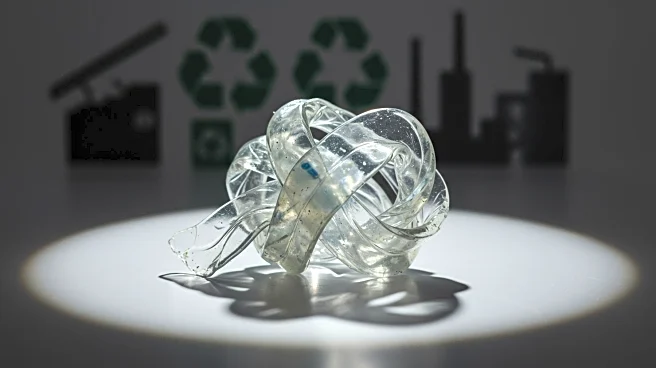What is the story about?
What's Happening?
Recent negotiations aimed at developing a global treaty to address plastic pollution have ended without agreement, highlighting significant divisions among participating countries. The talks, held under the auspices of the United Nations, were the sixth round in nearly three years. A group of approximately 100 nations advocated for curbing plastic production, while oil-producing states pushed for a focus on recycling. The core disagreement centers on whether the treaty should prioritize reducing plastic production or managing pollution from existing plastics. Despite efforts to reach a consensus, the talks concluded without a resolution, with delegates expressing disappointment over the missed opportunity to address the global plastic crisis.
Why It's Important?
The failure to reach an agreement on a global plastic treaty underscores the challenges in addressing plastic pollution, a pressing environmental issue. Plastic production has surged from two million tonnes in 1950 to approximately 475 million tonnes in 2022, with projections indicating continued growth. The divide between countries advocating for production curbs and those favoring recycling reflects broader economic interests, particularly for oil-producing nations that view plastics as integral to their future economies. The inability to agree on a treaty highlights the need for confronting fossil fuel interests to effectively tackle plastic pollution, which poses risks to human health and the environment.
What's Next?
The chair of the negotiations announced that talks will resume at a later date, indicating ongoing efforts to reach a consensus. The new text produced during the negotiations aligns more closely with the requests of countries advocating for recycling improvements, but does not call for production curbs. Environmental groups have criticized the prioritization of profit over environmental health, urging for stronger agreements. The continuation of talks suggests that stakeholders will need to navigate complex economic and environmental interests to achieve meaningful progress.
Beyond the Headlines
The collapse of the talks highlights the ethical and environmental dimensions of plastic pollution, emphasizing the need for global cooperation to address the issue. The debate over production versus recycling reflects broader questions about sustainable development and the role of fossil fuels in modern economies. The ongoing negotiations may influence future policies and practices related to plastic use and waste management, potentially leading to shifts in industry standards and consumer behavior.
















